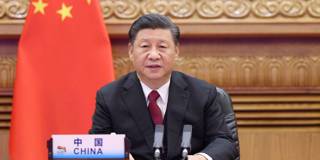Joe Biden’s presidency amounts to a golden opportunity to initiate a direct and honest dialogue with China on issues that require constructive engagement. But time is of the essence. If Biden begins his term by choosing division over dialogue, changing course will soon become difficult, if not impossible.
HONG KONG – Americans don’t agree on much of anything nowadays. Yet they are largely united in their belief that China represents an existential challenge to their country and the international order it has long led. This combination of internal division and external demonization has made the Sino-American rivalry increasingly inescapable – and potentially catastrophic.

HONG KONG – Americans don’t agree on much of anything nowadays. Yet they are largely united in their belief that China represents an existential challenge to their country and the international order it has long led. This combination of internal division and external demonization has made the Sino-American rivalry increasingly inescapable – and potentially catastrophic.